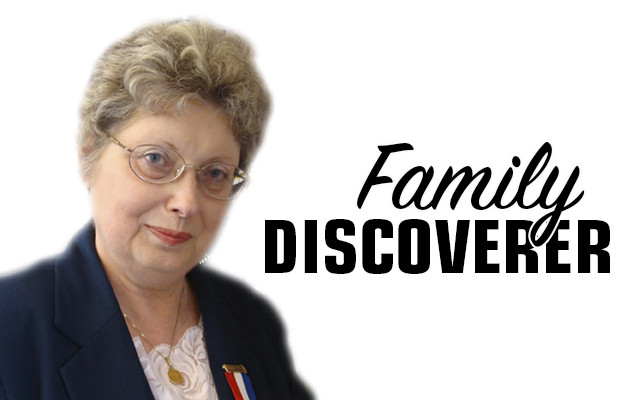
Research on the road
In my last column I urged readers to rejoin the genealogical world. Unfortunately the delta variant of COVID-19 is making that difficult as it spreads across our state. The Maine Genealogical Society’s half-day fall conference has been canceled, and I imagine some openings of archives and libraries will be further delayed.
If you’re itching for a research trip, please check before you head out to be certain the facility is open and any restrictions you need to follow. If you’re opposed to wearing a mask, you may have to wait to enter certain libraries or archives both for your own protection and the staff’s.
Speaking of genealogical traveling, have you ever visited another state or country to do genealogical research and to see where your ancestors came from? Sometimes this is a once-in-a-lifetime opportunity. A second cousin had the privilege of visiting Lithuania and the hometown of our ancestors, though all trace of them disappeared in the Soviet years. My own trip to places such as Jamestown and Plymouth allowed me to visualize ancestral lives. It’s a special thrill and an experience not to be missed if at all possible.
A few years ago we were planning a trip to Nova Scotia and while doing online research I spotted a “Genealogy Trail” map. As I recall it showed the locations of major archives, libraries, societies, museums and other places that had genealogical records for that area of the province. I thought it was a brilliant idea. Not only did you have all the places where you might find genealogical material with a sidebar giving contact information, you had a map with directions on how to get there all in one easy package. And it could be found online at that time. I don’t know of any Nova Scotians in my tree but the concept fascinated me.
I’ve often wondered why Maine doesn’t do something like that. Many people with Maine ancestry want to find out about their families and visit towns and even homes where their ancestors lived, to stand silently by cemeteries, or do research. They’ll often combine that with a chance to see some of Maine’s coastal or inland attractions. While here they boost the local economy. I’ve often helped researchers with questions about Piscataquis County towns and done my best to connect them with research facilities or historical societies that can help them find more about their families.
Certainly there are already guides to Maine’s research facilities and I recently reviewed a great one published in American Ancestors magazine but the idea of a map devoted strictly to the genealogical tourist sounds like a terrific idea to me. Many people don’t use maps relying on GPS to guide them which is dangerous in my part of Maine. Relying on a GPS can find you stuck on an old tote road with no cellphone service. While information on researching Maine is out there in one form or another, wouldn’t a single “road map” make life easier?
Nancy Battick is a Dover-Foxcroft native who has researched genealogy for over 30 years. She is past president of the Maine Genealogical Society, author of several genealogical articles and co-transcribed the Vital Records of Dover-Foxcroft. Nancy holds an MA in history from UMaine and lives in Dover-Foxcroft with her husband, Jack, another avid genealogist. You can contact Nancy at nbattick@roadrunner.com.